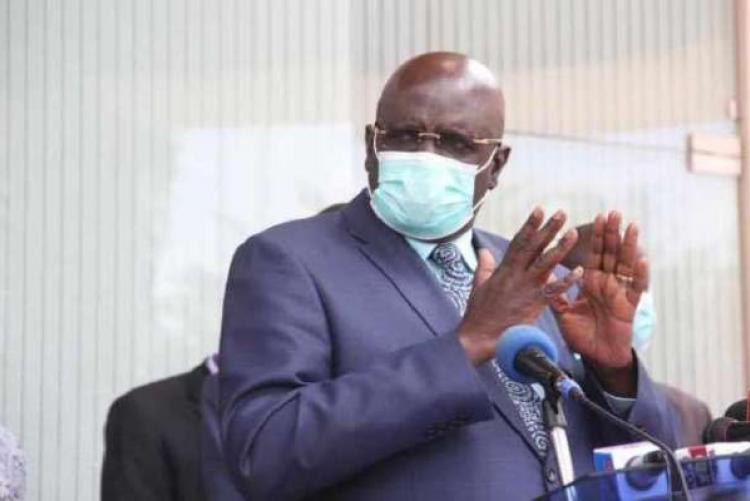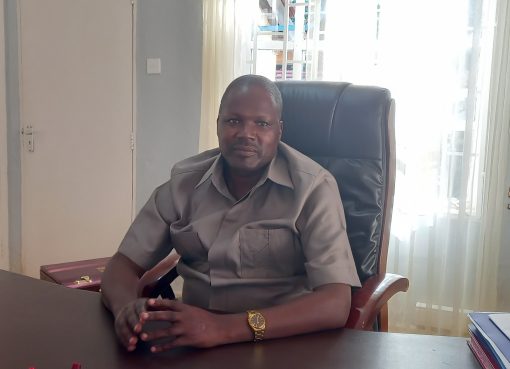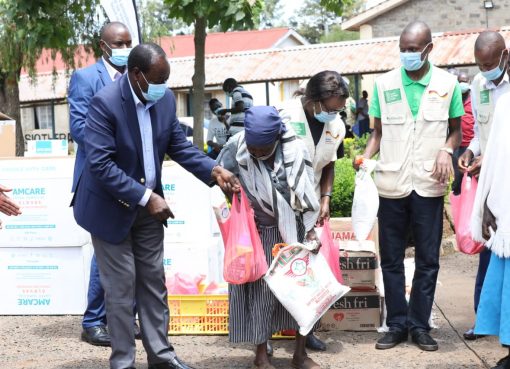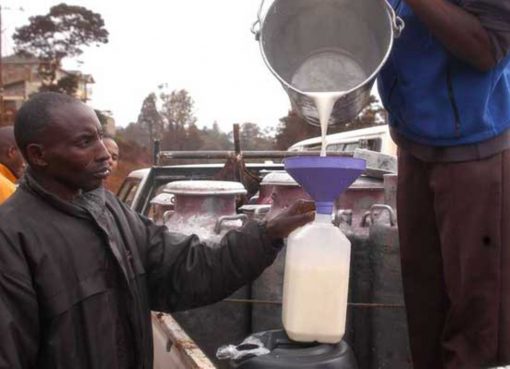Education Cabinet Secretary Professor George Magoha has challenged public universities to come up with innovative ways of alternative funding to shore up their revenue streams.
Prof. Magoha also asked Universities to initiate income-generating projects to enhance financial stability, affirming that the government will not increase capitation to the institutions due to economic meltdown occasioned by Covid-19 pandemic.
The CS spoke at Egerton University during the institution’s 43rd graduation ceremony where 2185 students were awarded diplomas, degrees and doctorates in various fields during the event that was held virtually.
Key people who physically graced the occasion included Prof. Magoha, Principal Secretary, State Department for University Education and Research Ambassador Simon Nabukwesi, Chancellor Dr.Narendra Rameshchandra Raval, the Acting Vice Chancellor Prof. Isaac Kibwage, Chair of Council Ambassador Dr.Luka Hukka Wario and members of Senate.
He directed universities to cut the number of non-essential and support staff to accommodate more teaching staff, adding that in most public institutions academic members of staff were fewer, yet the core business of universities was teaching, research and related services.
“Many public universities are struggling with funding inadequacies, a situation that is hindering research and other learning processes. Unless deliberate changes are instituted to check the trend, their future is bleak. If public universities are to prosper, they must be relevant to the societies in which they exist. That relevance is not only in churning out graduates every year but also creating jobs for them in different sectors of the economy,” observed Professor Magoha.
Dr. Raval urged public universities to consider collaborating with the private sector in research, product development and innovation, providing and selling content to the media industry, working with ICT departments to train staff and testing new manufacturing formulae.
The Chancellor expressed concern that Kenyan universities have lagged in research yet they have experts in many fields who have the capacity to come up with innovative products that can greatly contribute to the Big 4 agenda on food security, manufacturing affordable housing and universal health care.
“It is a shame that we still import a significant proportion of food, machinery and pharmaceuticals among other products yet we have potential innovators in our universities. Universities have been known to be innovators and pioneers. Take the example of an Egerton University lecturer who made a safe Covid-19 sample collection booth at a time when Africa was being ravaged by the disease,” Dr. Naval pointed out.
Public universities are facing serious financial troubles after the Treasury cut their budget allocation by Sh4 billion. Managers have maintained that the Sh109 billion they have been allocated is inadequate to run the institutions of higher learning in light of the rising student enrolments.
Until recently, they would make up for the shortfall by raising revenue from enrolling a considerable number of self-sponsored students to the parallel degree programmes. But there has been a sharp decline in the number of self-sponsored students over the past three years.
Ambassador Nabukwesi called on budget and policy making processes to help seal perennial gaps in funding of research, innovation and education in universities.
He singled out the Veterinary Research Fund, which had established an ultra-modern Sh39 million safe food laboratory at Egerton University.
“The laboratory will enhance the horticultural sector in Kenya to meet standards for export market as farmers will have their produce tested for presence of pesticides and herbicides in vegetables, fruits, flowers and other products,” noted the Principal Secretary.
He added that the facility will contribute to the quality of animal feed and food for human consumption, which will improve the country’s food nutrition and safety.
By Anne Mwale and David Opingo





